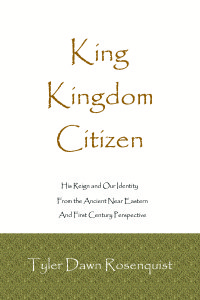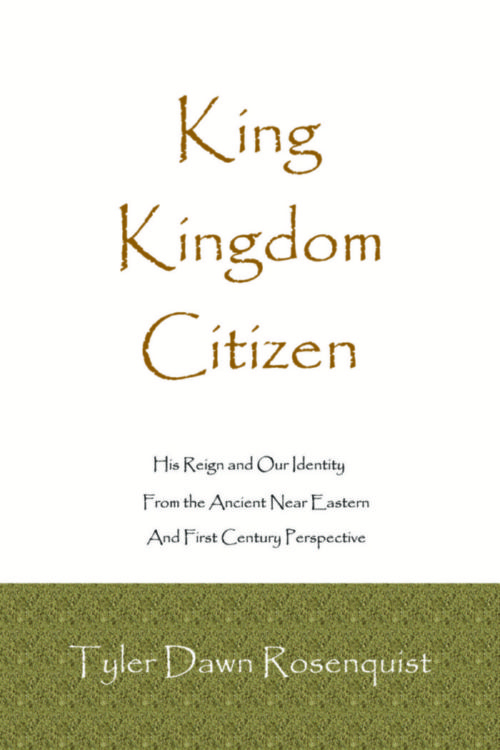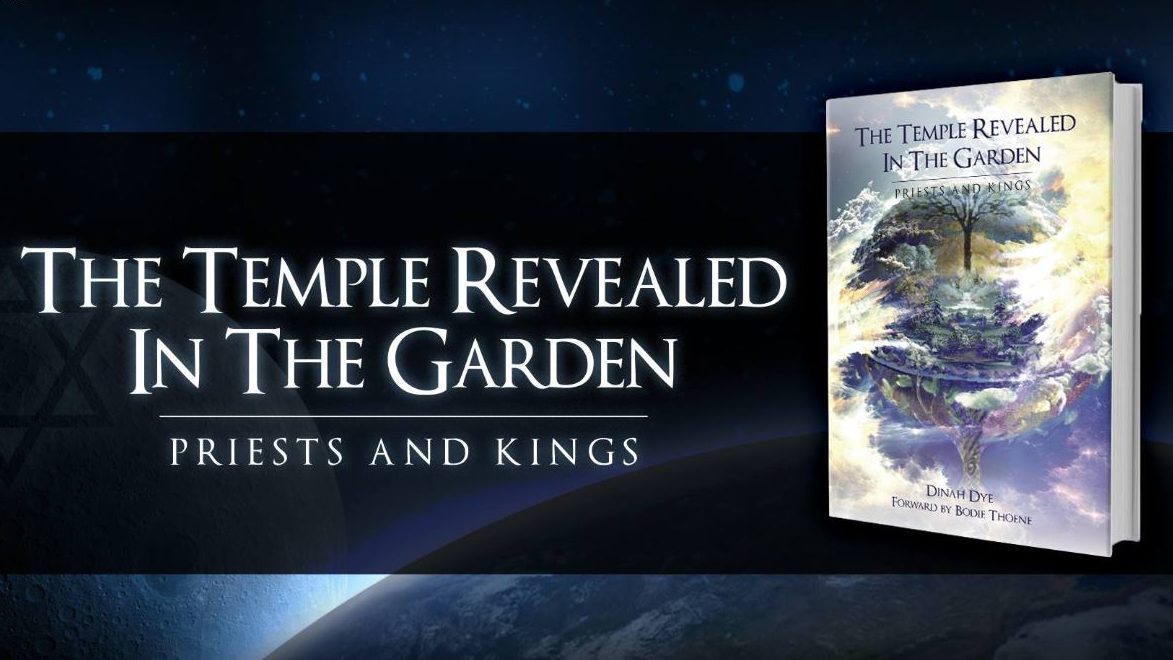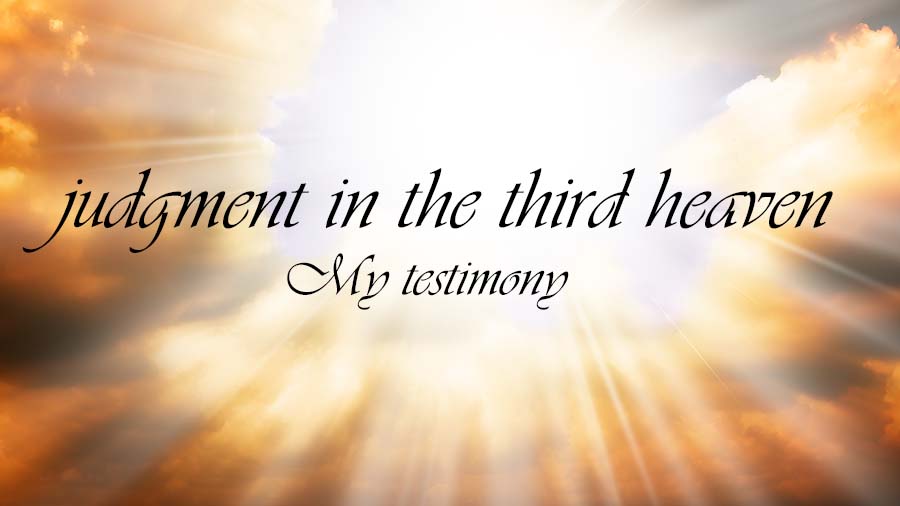 There is a disturbing tendency that has come out of some facets of Messianic Judaism and the Hebrew Roots Movement to label any praise of Yeshua/Jesus as a sin – and yet few people know that has its source, not in the Bible, which clearly presents two divine figures in Daniel 7 to sit on the two thrones mentioned in verse 9 (the great Rabbi Akiva, post Yeshua, even mentioned it). But this devastating doctrine is a trap laid by the Jewish scholars of the Middle Ages, not to convert gentiles, but to prevent Jews from believing in Yeshua as Messiah – as though Judaism had always agreed uniformly on these principles. In the 12th century, Maimonides (RAMBAM) wrote the famous 13 articles of faith that modern Judaism is founded on, and it is easy to see that they were written as a response to a Christianity that was increasingly hostile towards Judaism, shamefully so. The way these were written up makes charges of idolatry inevitable (yet without merit) when we praise and even worship Yeshua – but, the idea that we are bound by the writings of RAMBAM, regardless of his brilliance (I greatly value his insights into the Mishnah), is misguided. RAMBAM was reacting to a clear and present danger, and we cannot blame him for it – what was being done to Jews in the Name of their Messiah was clearly not of the character of God and it is no wonder they could not see their King. In this chapter from my book King, Kingdom, Citizen: His Reign and Our Identity, I tackle the faulty doctrine of not being permitted to praise Yeshua head on, of it being enough to simply acknowledge the Father. For a while, I followed that doctrine, and the anti-missionaries (people who used to believe in Yeshua and who have denied him or Jews who actively try and keep other Jews from coming to their Messiah) almost nabbed me four years ago by approaching me through the underhanded schemes of someone who presented himself as a friend. Refusing to acknowledge Messiah as my Lord and Master was an unwittingly treacherous step towards denying Him altogether – quite ungracious when I consider His sacrifice on our behalf.
There is a disturbing tendency that has come out of some facets of Messianic Judaism and the Hebrew Roots Movement to label any praise of Yeshua/Jesus as a sin – and yet few people know that has its source, not in the Bible, which clearly presents two divine figures in Daniel 7 to sit on the two thrones mentioned in verse 9 (the great Rabbi Akiva, post Yeshua, even mentioned it). But this devastating doctrine is a trap laid by the Jewish scholars of the Middle Ages, not to convert gentiles, but to prevent Jews from believing in Yeshua as Messiah – as though Judaism had always agreed uniformly on these principles. In the 12th century, Maimonides (RAMBAM) wrote the famous 13 articles of faith that modern Judaism is founded on, and it is easy to see that they were written as a response to a Christianity that was increasingly hostile towards Judaism, shamefully so. The way these were written up makes charges of idolatry inevitable (yet without merit) when we praise and even worship Yeshua – but, the idea that we are bound by the writings of RAMBAM, regardless of his brilliance (I greatly value his insights into the Mishnah), is misguided. RAMBAM was reacting to a clear and present danger, and we cannot blame him for it – what was being done to Jews in the Name of their Messiah was clearly not of the character of God and it is no wonder they could not see their King. In this chapter from my book King, Kingdom, Citizen: His Reign and Our Identity, I tackle the faulty doctrine of not being permitted to praise Yeshua head on, of it being enough to simply acknowledge the Father. For a while, I followed that doctrine, and the anti-missionaries (people who used to believe in Yeshua and who have denied him or Jews who actively try and keep other Jews from coming to their Messiah) almost nabbed me four years ago by approaching me through the underhanded schemes of someone who presented himself as a friend. Refusing to acknowledge Messiah as my Lord and Master was an unwittingly treacherous step towards denying Him altogether – quite ungracious when I consider His sacrifice on our behalf.
Bottom line: Yeshua is the absolute image of God on earth. When we look at Him we see the Father, and I for one am not capable of looking at the image of the Father and not falling to my knees in devotion. If a human saved my life, I would certainly praise him (I just wouldn’t worship him), but when the divine son of God saves the lives of all the world who look to Him – I have to do more than praise Him. Literally no amount of praise is enough. Yeshua only did whatever He saw the Father doing, and so I have to respond to that with worship – because in so doing, I also heap even more worship and honor on His Father. Make no mistake, how we treat someone’s son is how we are treating them, and we cannot fool ourselves into thinking we can all but ignore Messiah, withhold the honors due to Him, and be pleasing to God.
Why Do We Need the Heir?
The Father is Spirit, unseen,[1] and does not directly interact with humanity in human form. He is the great Suzerain in the Heavens and He has always interacted with His people through the Word. Through Scripture, we see the Word made manifest as the Angel of the LORD or YHVH who spoke with Moses face to face; but most recently and profoundly, we see the Word made flesh as Yeshua ben Joseph. We need Him. The Kingdom of Heaven needs a flesh and blood monarch, an heir to the Kingdom of God; we have already proven that in the absence of physical, godly leadership we are easily corrupted.
That’s fine, you may say – but why do we need to acknowledge Him now? Isn’t it enough to just worship God the Father? Why is it important to understand the concepts of King and Kingdom and to recognize the legitimate Heir? In summary of the first three sections and giving a short introduction for the fourth:
Messiah was born into a pre-existing Kingdom; He did not have to die and resurrect to create a new one. This Kingdom was not the Kingdom of the Jews but the Kingdom of God and it had been closed off – made exclusive. Contrary to Torah law, the House of Shammai Pharisees made it virtually impossible not only for the lost tribes of Israel to return from exile and divorce, but also for the Gentile Nations to enter in.
Matthew 23:13 “But woe to you, scribes and Pharisees (of the House of Shammai), hypocrites! For you shut the kingdom of heaven in people’s faces. For you neither enter yourselves nor allow those who would enter to go in.”
That’s why it was so important for the Heir to the Kingdom to show up and “lay down the law,” so to speak. Preaching on behalf of the Father, and using only His Father’s words, Yeshua deflated the importance of the traditions of the elders (now found recorded in the Talmud) and elevated the original laws of the Kingdom. He promoted His Father as the great King who alone had the right to determine the rules and regulations, the legal Constitutional requirements placed upon the citizens of His own Kingdom. By upholding His Father’s ways, by showing Himself to be righteous and just towards the poor, sick, widows, orphans and oppressed, through signs and wonders, and through a renewal of the original Kingdom Covenant by His own blood ratification, He proved that He was indeed the Son of the Father. Yeshua, through His words and actions, showed us the character of His Father, the Great King. When we look at His character and say, “I do not recognize YHVH in the works of Yeshua,” we are refusing to acknowledge the most excellent character of our King.
Yeshua was more than a prophet, He was a living, breathing, dare – “Tell me that you know My Father and do not see Him in my every righteous action! If you don’t recognize Him when you see Me, then you do not know Him – we are One.”
John 14:9 Jesus said to him, “Have I been with you so long, and you still do not know me, Philip? Whoever has seen me has seen the Father. How can you say, ‘Show us the Father’?
Why can’t we have the Father without the Son?
John 14:6 Jesus said to him, “I am the way, and the truth, and the life. No one comes to the Father except through me.”
Why can’t we be in good standing in the Kingdom of God without recognizing the Son? When we refuse to acknowledge the Son, not only are we failing to recognize the righteousness and justice of our King, but we are refusing to recognize His Heir to the kingdoms of the world. If I were a righteous Queen, and I sent my son out among my own people to represent me – and if he was a good and righteous man, if no fault could be found with him, if there was no sin (violation of my kingdom laws) to be found in him, if he not only upheld my every law but also taught others to follow them, if he restored the original intentions of my laws, if he railed against those who set up their own laws and illegitimate kingdoms within my kingdom, if he showed my character by having mercy upon the “least of these” … and if you turned around and said that you “didn’t see the resemblance” then it would not matter what you did – there would be no intimacy between us. You would be insulting me. If you claimed to know me, and to represent me, but you didn’t know me well enough to see me in my own son – then although you might live without going to jail because you kept my laws and were otherwise a good citizen, you would have no part in his coming reign.
Yeshua’s coming reign is a big deal; His reign is about eternal life here on earth.
When someone rejects Messiah, even if they keep the laws and live a blessed life because of it (because obedience to the laws of a kingdom will always result in blessing, it’s just simple logic), they will have no part in the Kingdom when it passes into His hands.
Rev 11:15 Then the seventh angel blew his trumpet, and there were loud voices in heaven, saying, “The kingdom of the world has become the kingdom of our Lord and of his Christ, and he shall reign forever and ever.”
Messiah, coming in the mercy of the Father, reopened the gates of the Kingdom of Heaven to all those from around the world who would recognize the heir and desire to live as good citizens in His Kingdom. This was the original intent at Sinai, “one law for all, the native and the foreigner.”
Ex 12:49 There shall be one law for the native and for the stranger who sojourns among you.” (see also Lev 24:22 You shall have the same rule for the sojourner and for the native, for I am the LORD your God.”)
The world was meant to see the righteousness and justice of God, His mercy and kindness, through those laws that were so different from the laws of men – the world was meant to desire to live under those laws, to recognize the wisdom of the citizens of the Kingdom of God.
Deut 4:6-8 Keep therefore and do them; for this is your wisdom and your understanding in the sight of the nations, which shall hear all these statutes, and say, Surely this great nation is a wise and understanding people. For what nation is there so great, who hath God so nigh unto them, as the Lord our God is in all things that we call upon him for? And what nation is there so great, that hath statutes and judgments so righteous as all this law, which I set before you this day?
The pagan nations were supposed to look at their own laws and see how burdensome they were, how unrighteous and unjust – and by extension how lacking their own gods were. Israel was meant to be a light – attracting the world to the King of kings. But they hid that light under a bushel basket, and they greedily kept it for themselves. Messiah came to change that. He is the light; He is the perfect representation of the perfection of the Father and of His goodness and justice and righteousness.
Matt 5:15 Nor do people light a lamp and put it under a basket, but on a stand, and it gives light to all in the house.
We were created to desire that righteousness, but we were trained by the world to resent it. We were meant to desire His rule, but we were taught to fear it. We have been conditioned to want a King who has no ability to rule us – but a King without laws is a King without dominion, authority, or power. From the beginning, God has been looking for good citizens for His Kingdom so that it can shine like a gleaming city on a hill. We owe it to Him to draw people to His righteousness by exemplifying who He is, by following the example of the Son.
We owe it to Him to become citizens of the Kingdom of Heaven – not in the future, but now – establishing His dominion across the face of the earth. This was the original plan in the Garden, renewed again at Mt Sinai with the blood of animals, and then finalized with the righteous blood of Yeshua.
We all owe Him everything, but in the first century, something very serious was happening that kept some from giving Him anything at all. We see glimpses of this problem in the gospels, and we see Paul fighting it tooth and nail in the epistles. Between the return of the Jews from exile and the ministry of Yeshua, something had gone terribly wrong. That something was preventing people from entering into the Kingdom of Heaven, and if we don’t understand what that was, we will never fully understand what Yeshua came to fulfill or what Paul was writing to the assemblies about.
[1] John 1:18; Col 1:15; I John 4:12, etc.





















Tyler, why are you thinking that there are two thrones in Daniel 7:9? Couldn’t there be the same 25 thrones here that the Apostle John was shown in Revelation 4? One for God the Father and 24 for the Elders?
Revelation does speak of thrones, yes, and they do contain the elders that we also see in Daniel 7:10 – however, I believe that these are Sanhedrin chairs. The greater Sanhedrin had a minimum of 23 seats and this served as the Supreme Court of the Jews. They administrated Torah Law as per last week’s Torah portion. Revelation mentions 24 elders and the Sanhedrin has 23 elders, I find this too close to be coincidental. Therefore, I believe what Rev 4 is describing is the Father sitting as King among the Heavenly court of 24 as 7:10 specifcally mentions the court. In Rev 5, we see Yeshua approach and open the scroll – this very much mimics Daniel 7 in every way. All that being said, repeated reference is made by Paul to Yeshua being seated at the right hand of the Father, and Rabbi Akiva, in his commentary on Daniel 7 made mention of the thrones being for the “greater and lesser YHVH” – I will close out this comment and go find the reference before my computer locks up again lol.
Haggigah 14a of the Talmud records debates of the rabbis who noticed the presence of more than one throne with different descriptions of who was sitting in them, and they tried to resolve the problem (although there are many other cases of someone being seen seated bodily on the throne when we know that the Father is Spirit and cannot be seen) – Akiva claimed that the Ancient of Days was on one and that David (aka Messiah) was seated on the other. Akiva lived within a hundred years of Yeshua – sorry for the gobbeldy guck, Gemara is just written about as clear as mud until you are used to it – and even then… lol:
One verse says: His raiment was as white as snow, and the hair of his head like pure wool;11 and
[elsewhere] it is written: His locks are curled and black as a raven!12 — There is no contradiction:
one verse13 [refers to God] in session,14 and the other in war.15 For a Master said: In session none is
more fitting than an old man, and in war none is more fitting than a young man.
One passage says: His throne was fiery flames;16 and another Passage says: Till thrones were
places, and One that was ancient of days did sit!17 — There is no contradiction: one [throne] for
Him, and one for David; this is the view of R. Akiba. Said R. Jose the Galilean to him: Akiba, how
long wilt thou treat the Divine Presence as profane!18 Rather, [it must mean], one for justice and one
for grace.19 Did he accept [this explanation from him, or did he not accept it? — Come and hear:
One for justice and one for grace; this is the view of R. Akiba. Said R. Eleazar b. ‘Azariah to him:
Akiba, what hast thou to do with Aggadah?20 Cease thy talk, and turn21 to [the laws concerning
defilement through] leprosy-signs and tent-covering!22 Rather, [it must mean] one for a throne and
one for a stool; the throne to sit upon, the stool for a footrest, for it is said: The heaven is My throne,
and the earth is My foot-rest.23
(11) Dan, VII, 9.
(12) Cant. V, 11.
(13) I.e., Dan. VII, 9.
(14) I.e., sitting in judgment; cf. ibid. v. 10.
(15) Canticles is interpreted by the Rabbis as referring in greater part to the Exodus (note that the book is read in the
synagogue during Passover) when God appeared as a warrior (cf. Ex. XV, 3).
(16) Dan. VII, 9.
(17) Ibid., beginning of the verse. The plural implies two thrones, whereas the first passage speaks of only one.
(18) By asserting that David occupies a place next to God.
(19) Lit., ‘righteousness’, but used here, apparently, in the sense of ‘lovingkindness, grace’.
(20) For Haggadah v. Glos. s. Aggadah. R. Eleazar b. ‘Azariah regards even this explanation as dangerous, because it
implies a duality of character on the part of God, and militates against the fundamental Jewish concept of God’s perfect
unity.
(21) The two verbs in the English are represented by one in the Hebrew viz.lkf which is really a combination of
lku vkf, ‘cease and go (elsewhere’).
(22) V. p. 56, nn. 5 and 6. R. Akiba’s intellectual gifts were best suited to Halachah, not Haggadah. The laws relating to
defilement by leprosy and tent-covering form two of the most difficult tractates of the Halachah.
(23) E. V. foot-stool’, Isa. LXVI, 1.
A really interesting book on this subject matter is The Messiah Texts by Raphael Patai – it shows the Messianic beliefs of the time of Yeshua.
Excellent work. I got lost there for a while too.
Scary how easy it is, huh? And very humbling….
I think “going there” is part of the journey and question every follower of Messiah has to face: Who do YOU say I am…..? Whatever our answer may be, will determine our response.
Excellent article Tyler!
Tyler, I have been through the question of “Is Jesus the Messiah?” and I have a friend on that journey now. I’m curious: was your understanding of King and Kingdom part of what helped you understand Yeshua as Messiah? What other resources helped you past this? I’m desperate for resources because, to be honest, her journey through this has me feeling like my belief is invalidated ;/
Interesting thing is that I never once doubted until an antimissionary posing as a friend started raising doubts with me. But I listened to things that I should not have listened to. I mean, I didn’t need an understanding of King or Kingdom or ancient Near Eastern stuff. The witness of my own life and the changes and the miracles were always before me. When I listened to the accusations against my King, something happened inside me, I inexplicably began to forget everything I knew. I forgot the voice of God, in the beginning, pressing upon me the reality of His presence and my need for the Cross. I forgot that I stopped swearing cold turkey, without even trying. I forgot the day when God told me to lay hands on my special needs son’s spine and pray in Jesus’s Name for healing, and how overnight his hip displasia was completely reversed.
In the Scripture we see the repeated commandment to remember and recount the deeds of God. I had stopped doing that, and I got into a crisis of faith – because I was forgetting all the evidence of Yeshua/Jesus in my own life. In a way, I was saying that either God encouraged me to be an idolater by making all those miracles and changes in me through the name of Messiah, or that I myself was responsible for the miraculous changes. It was tantamount to Moses claiming that he split the red sea by his own magic, or virtue. In fact, I almost denied, until I heard the voice from Heaven saying, “What will you have to choose to forget in order to deny Me?”
That snapped me out of it quickly. He was right, I was forgetting my experiential knowledge of God. I had fallen into the modern trap of trying to intellectually grasp the things of God, as if my mind was sharp or large or intelligent enough to understand what is clear to God but too great for us.
I had listened to slander against my King and Savior, just because – and not because He had ever given me cause to doubt Him. It was like suspecting my husband of adultery despite him never staying at the office late, just because someone decided to float the idea that he might not be faithful. I was committing treason simply by listening, I was choosing to forget all His goodness to me, and I was accusing all the miracles of being the work of demons, or my own self.
Scholarship won’t save anyone from denying Yeshua – what we can be convinced of intellectually, we can be argued out of intellectually as well. We just have to ask ourselves – what is the fruit of Messiah in this world? What kind of a place was it before He died and what kind of a place is it now? Has the Kingdom of Heaven been advanced? Have there been healings and miracles? Has paganism been soundly defeated in the Western world through the teachings and transformation of the Cross? I could go on and on. But what is the empirical evidence? The evidence clearly shows that the world was radically transformed after the cross. Despite hiccups caused by brutal men, the Kingdom of God is behaving like leaven in three measures of flour and is expanding all over the world.
This is beautiful and heartfelt. Thank you for the reminder to remember His works. This is what it came down to for me the last time I began to question Yeshua as Messiah. For those (and apparently I fall into that category occasionally) who are looking for an intellectual answer, pointing to the empirical evidence may not satisfy. But I don’t have to think very hard to remember that he delivered me from rage pretty much overnight. I have heard His voice as audibly as I possibly can. And, I have never known God as tangibly as I do in this time of my life. It distinctly happened last Sabbath. I don’t think I could know the Father like this if I had never known the Son.
I may have to come back here every so often as a reminder to remember. In the meantime, I may just spend the rest of counting the omer actually counting His works in my life.